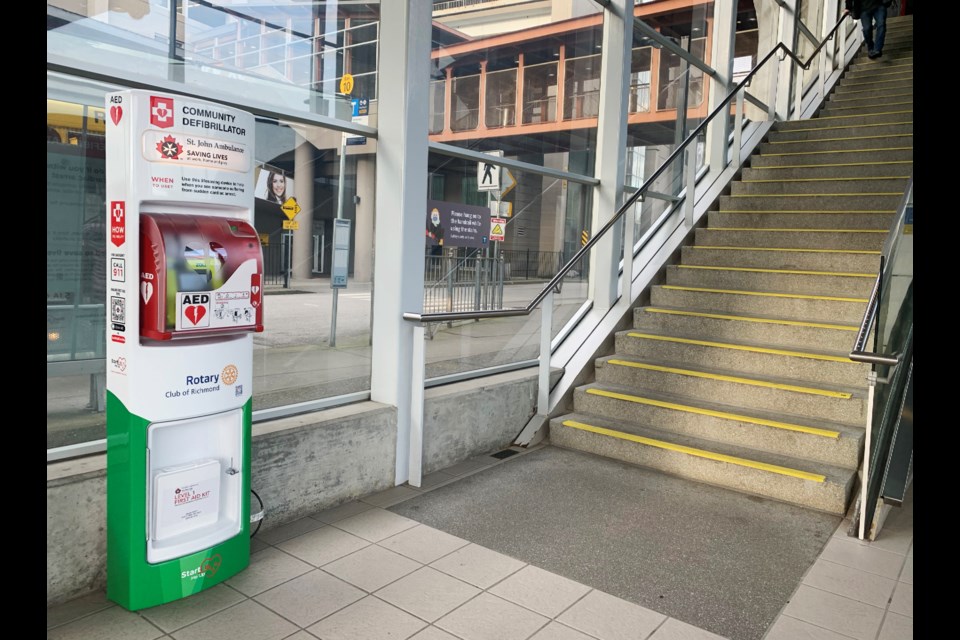If you have a sudden cardiac arrest while waiting for the Canada Line, your chance of survival is now that much greater.
Two automatic defibrillator stations (AEDs) have been set up at Brighouse and Bridgeport Canada Line stations, and are among the first such stands to be installed in the province by St. John Ambulance BC and Yukon (SJA).
“With the constant flow of people through (the stations), and the potential risk of sudden cardiac arrest, it made sense to use a transit hub to do the placement of the devices,” said Ken Leggatt, interim CEO of the first aid and safety charity.
In B.C., up to 6,000 people can die each year from sudden cardiac arrest, he said, and up to 40,000 across Canada – and the majority of cardiac arrests happen outside of a hospital setting.
“When there’s a sudden cardiac arrest, every minute counts,” Leggatt said.
“So somebody being able to attend to that, through using an AED or CPR, it’s really significant in the recovery and the ability to survive.”
Outside of a hospital, the survival rate of those who have a sudden cardiac arrest is just 5 per cent – but if an AED and/or CPR is used, that rate increases to “upwards of 75 per cent.” However, according to the charity, AEDs aren’t always readily available or accessible.
AEDs – similar to the devices carried by first responders – use an electronic shock to help restart the heart. The devices stocked in the Richmond stations are fully automatic, with instructions and audio prompts to help walk people through how to use them, including when to apply a shock to abnormal heart rhythms.
“You don’t have to be a first responder, you don’t have to have formal first aid training (to use the AEDs),” said Leggatt.
“It’s very user-friendly…and people shouldn’t be afraid to use an AED if something happens and somebody does suffer a sudden cardiac arrest.”
The community defibrillator stands are also stocked with first aid and naloxone kits, said Leggatt, in light of the ongoing opioid epidemic that claimed over 1,700 lives in B.C. last year. So far, none of the stands have needed to be used, but they are kept unlocked and can be accessed by the public 24/7.
The two Richmond stations were installed – with funding from the Rotary Club of Richmond – as part of SJA’s new Start Me Up BC campaign, which launched in February and aims to install 1,000 publicly-accessible stations in places such as transit hubs, downtown cores or parks and tourist hot spots across the province.
In total, four stands have been set up so far in the Lower Mainland, with the other two at Crescent Beach in Surrey and outside the SJA head office on Cambie Street in Vancouver. Leggatt said the charity is looking for more community groups to partner with and help raise funds to install more AED units.
To learn more about the campaign, visit startmeupbc.ca.



